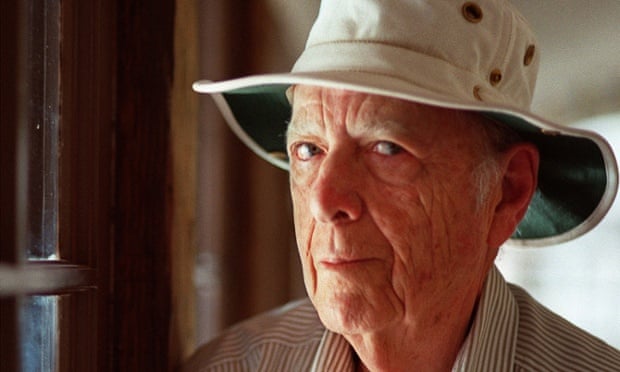Herman Wouk and the True Story Behind the Caine Mutiny
I originally planned to start putting chapters here to coincide with Memorial Day, but the whole scheme also intersects with Herman Wouk’s 100th birthday (5/27/2015). As I mentioned, the story of the Partridge is very similar to Wouk’s The Caine Mutiny.
I visited the Wouk Archives at Columbia University to research Burden of Command but found the box that I needed was sealed until something like 2034. The box contains a 25-page memo that Wouk wrote to the Secretary of the Navy (James Forrestal)late in the war. The memo is quoted in Herman Wouk, The Novelist as Social Historian by Arnold Beichman. That memo, which Beichman was allowed to read in its entirety, is sealed in that box (Box 5 to be exact). I tried to find the memo in the National Archives but that was a long shot and permission from Wouk himself was denied.

Never-the-less, I was able to use some of the quoted text from Beichman’s book and weave them together along with some of the logs from the ship Wouk served on late in the war. Here’s a snippet from an upcoming chapter called Lieutenant Wouk’s Memo that I’ll publish in a few weeks:
In the 25 pages, he outlined what he perceived to be the problems with Naval command.
“No topic is more popular in officers’ clubs through the wide Pacific than ‘Captain Bligh’ stories of this war…”
And, no doubt, Bligh was cited by many a disgruntled crewman and officers serving under a tough, unyielding commander. Charles Loughton’s portrayal of Bligh as a cruel madman in the film, The Bounty (the Academy Award winner for Best Picture in 1936), certainly influenced men of the Navy more than the the historical Bligh. and may have been Wouk’s intended reference in the memo.
Wouk, however, was not just complaining. He was outlining a path to reform. He went on to make recommendations for a new way the Navy could manage this problem – a recommendation that sounds more like an order to the Secretary of the Navy from no less than the commander in chief.
“Periodic reports shall be made by the officers of a vessel on the quality of the commanding officer…These reports shall not be seen by the commanding officer unless the Navy Dept. desires to bring them to his attention.”
Wouk was writing, not as an inexperienced Willy Keith, just coming aboard full of civvy optimism and reform. He had been at war for nearly four years. After strict, if not extensive, officer’s training and life aboard two Navy vessels, Wouk still saw the value of civilian protocols in the chain of command.
“Justifiably or not, young men with a democratic upbringing feel deprived of human dignity and self-respect in our wardrooms today, and military indoctrination does not change that sentiment.”
It’s not likely that Wouk received a reply from the Secretary of the Navy. The outbreak of peace had sent the wartime bureaucracy into chaos. With Kamikazes, mined waters, amphibious assaults, and submarine attacks behind him, but close in his mind, Wouk eventually settled on the most familiar wartime feeling: boredom. Reform within the Navy had lost its interest for him. It was time to go home.
It will be interesting to read his new book Sailor and Fiddler: Reflections of a 100-Year-Old Author to see if it reveals anything new.
From the Guardian: Herman Wouk to publish first memoir aged 100



